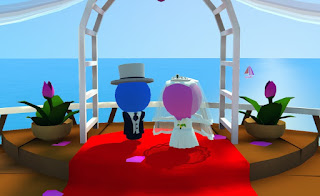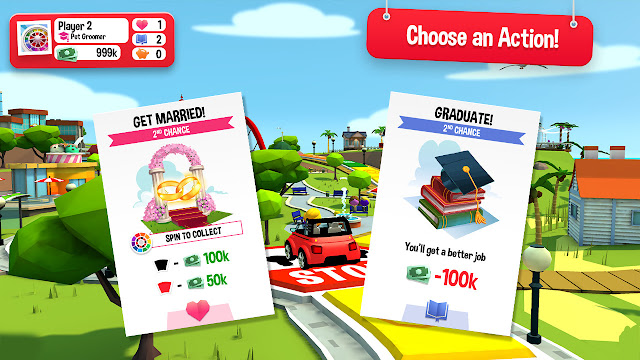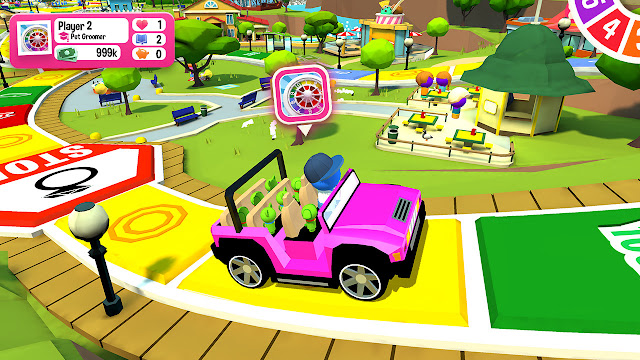Look, I know The Game Of Life is just a board game and so on and so forth, but in some ways it makes me genuinely uncomfortable. The way it abstracts a person’s progress through life is very much about upholding and celebrating the status quo, and the decisions that you make along the way generally fall into trading off between being educated (with the only reward for doing so being “a better job” as though education has no value beyond the vocational payback) and being “happy” (having family and pets and such). The ideological implication of this game is that education and wealth are something distinct from social happiness and that success in life is defined across some very limited categories, linked up with your ability to do what society expects of you.
About the only theme I appreciate within The Game of Life 2 is that you’ve got very little agency over your progress through the game, and let’s face it, none of us is ever going to get more than a very limited hand to play with in real life either. So in that regard, The Game Of Life 2 is pretty spot-on; it’s marginally more decision-focused than Snakes & Ladders, but you’re never going to be doing more than making binary choices as you follow a linear path around the board.
None of the above is to criticise the development behind the game itself. Marmelade – a specialist developer that focuses on “classic” board games like Clue, Battleship and Monopoly – has gone overboard to make this a premium-looking board game. When a piece is moving, the camera zooms right in to show your character’s movement. There are alternative themed boards to play too (note that they’re basically the same layout and experience, but they do look suitably different), and there’s a good eye for detail and character, such that you find yourself caring about your uneducated little delinquent and wondering how he’s going to afford that pet dog he just adopted.
For those that haven’t played The Game of Life before, the basic idea is that you start out as a young adult having just finished school, and immediately you can make a decision between spending some of your limited funds to go to university (and then get a decent-paying job), or go out there and start working right away. From there the board represents the journey through life – each space is a step closer to retirement, and along the way you’ll earn a salary, use that to buy things, potentially get married, potentially have kids, potentially get promoted or find an even better job and potentially buy yourself some property. Then, once you get to the end of the board and retire, you’re given points based on how much wealth you’ve built up, how “happy” you are (i.e. spouse, kids, pets), and how educated and intelligent you’ve become over your life. The winner is the one that has the most points.
The most you’ll ever be asked to do is make a decision between two different options, each with positive outcomes (though some have an element of risk for a less positive outcome). Otherwise you’re simply following along at the rate that you spin up on the spinner (interesting bit of trivia: this game doesn’t use dice because when Milton Bradley dreamed up the very first edition of it, so many years ago, dice were too closely associated with gambling). No amount of effort put into the presentation of The Game of Life 2 can compensate for how utterly boring this game is outside of one game every couple of years. When the Switch has masterpiece board games like Armello or Wingspan on it, the only possible audience left for this is families with young kids that wouldn’t rather play Mario Party. It’s an incredibly narrow demographic.
– Matt S.
Editor-in-Chief
Find me on Twitter: @mattsainsb










